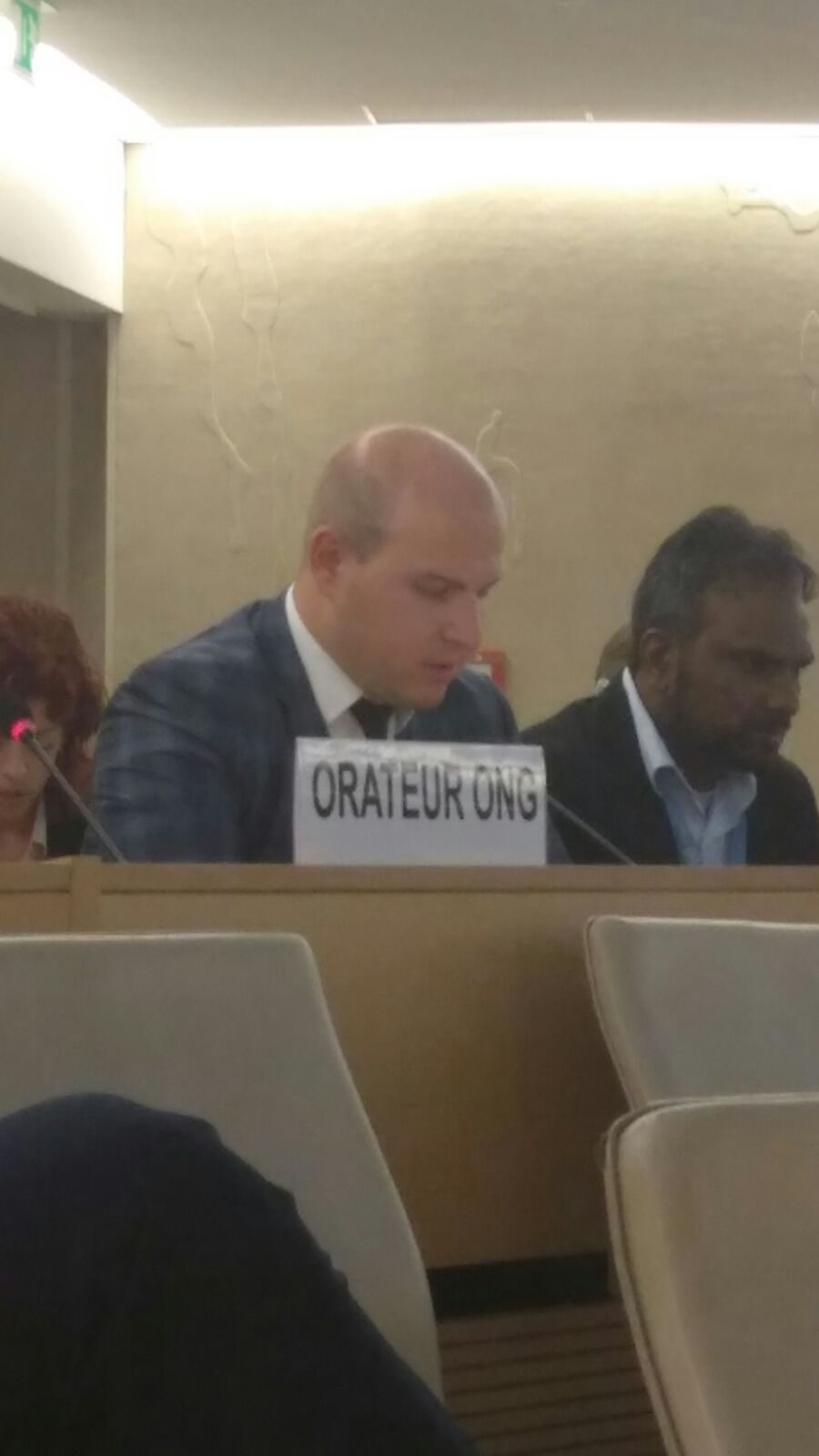On 6 June 2017, ADHRB’s international advocacy officer Michael Payne delivered an oral intervention on behalf of ADHRB and BIRD during the 35th session of the Human Rights Council during the Item 3 Clustered Interactive Dialogue with the Rapporteur on health and Independent Expert on international solidarity. In his intervention, Payne discussed the impact of extended detention in solitary confinement on detainees’ mental health and the issue of health in Bahraini prisons more generally, raising the examples of Nabeel Rajab and Dr. Abduljalil al-Singace. Please continue reading for the full text of his remarks or click here for a PDF of his intervention.
Mr. President,
Americans for Democracy & Human Rights in Bahrain together with the Bahrain Institute for Rights and Democracy (ADHRB and BIRD) welcome the report of the Rapporteur on health and his focus on promoting mental health. In this context, we would like to raise the issue of deteriorating mental health for political prisoners held in extended solitary confinement.
For example, in Bahrain, Nabeel Rajab, a prominent human rights defender and the president of the Bahrain Center for Human Rights, has been arbitrarily detained in solitary confinement for over nine months, while he awaits his first trial on spurious charges. This long-term isolation has been coupled with sleep deprivation, unsanitary cell conditions, and chronic physical pain, resulting in Nabeel suffering from deteriorated mental health, including severe depression and deep emotional suffering.
In addition to his precipitously declining mental health, Rajab’s physical health has suffered during his extended arbitrary detention in isolation. He suffers from a low white blood cell count, bleeding ulcers, and heart palpitations, and has undergone two operations. However, Bahraini authorities sent Rajab back into his unsanitary cell after allowing him only one day to recover in the hospital after his operations. As a result of his degraded physical condition, he is now kept in Bahrain’s Police Fort clinic full time, but authorities maintain his solitary detention there and have yet to provide any remedy for his psychological and emotional state.
Bahraini authorities have also used the physical disabilities of Dr. Abduljalil Singace, another prisoner of conscience, as a point of humiliation and degrading treatment, which also add to the adverse emotional and psychological effects of his arbitrary detention.
We therefore ask the Rapporteur, “What best practices can you recommend regarding the psychological and emotional care for detainees, particularly prisoners of conscience?” And, “can you comment further on any of your findings relating to the deeper psychological and emotional impact of extended arbitrary detention and solitary confinement?”
Thank you





